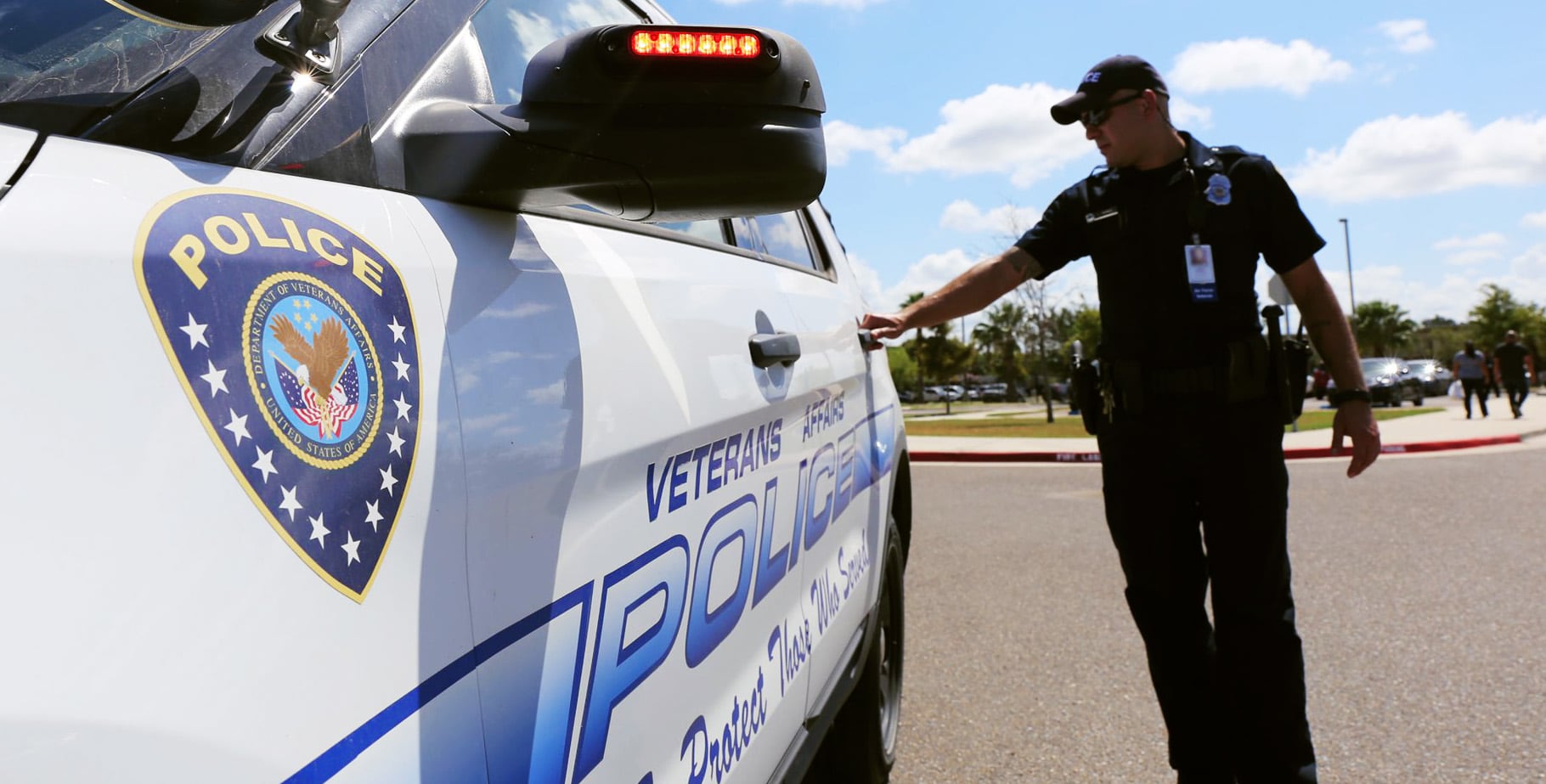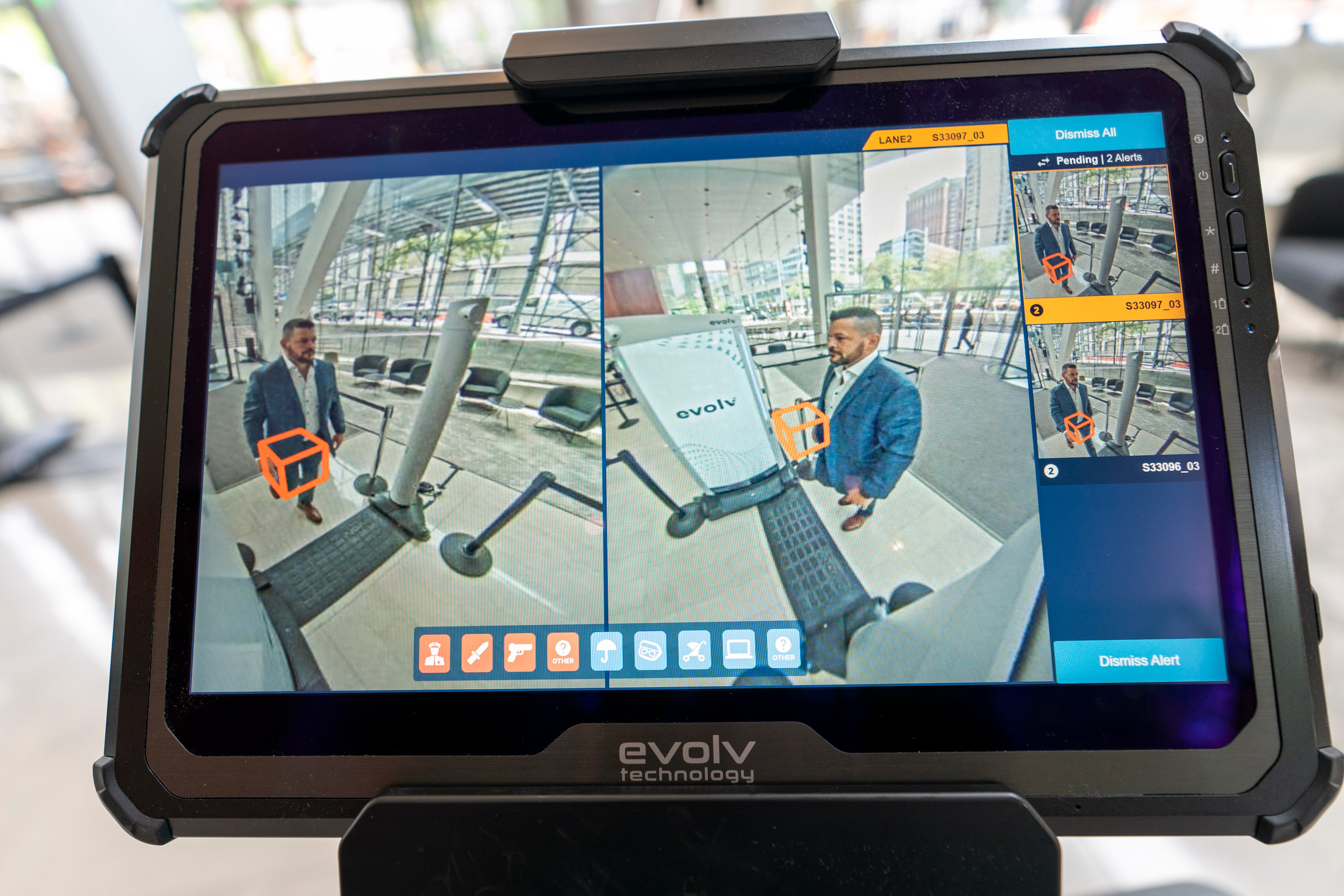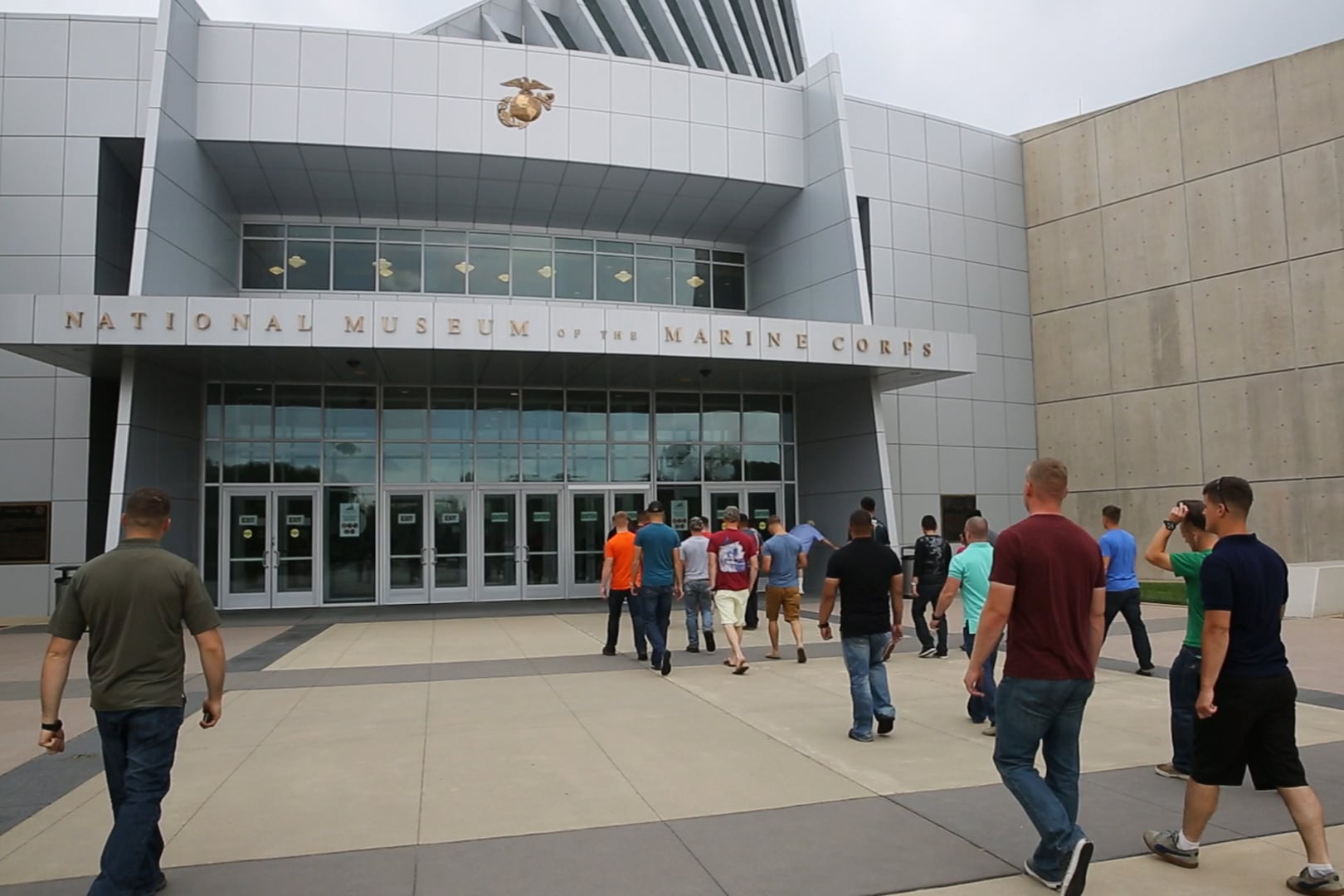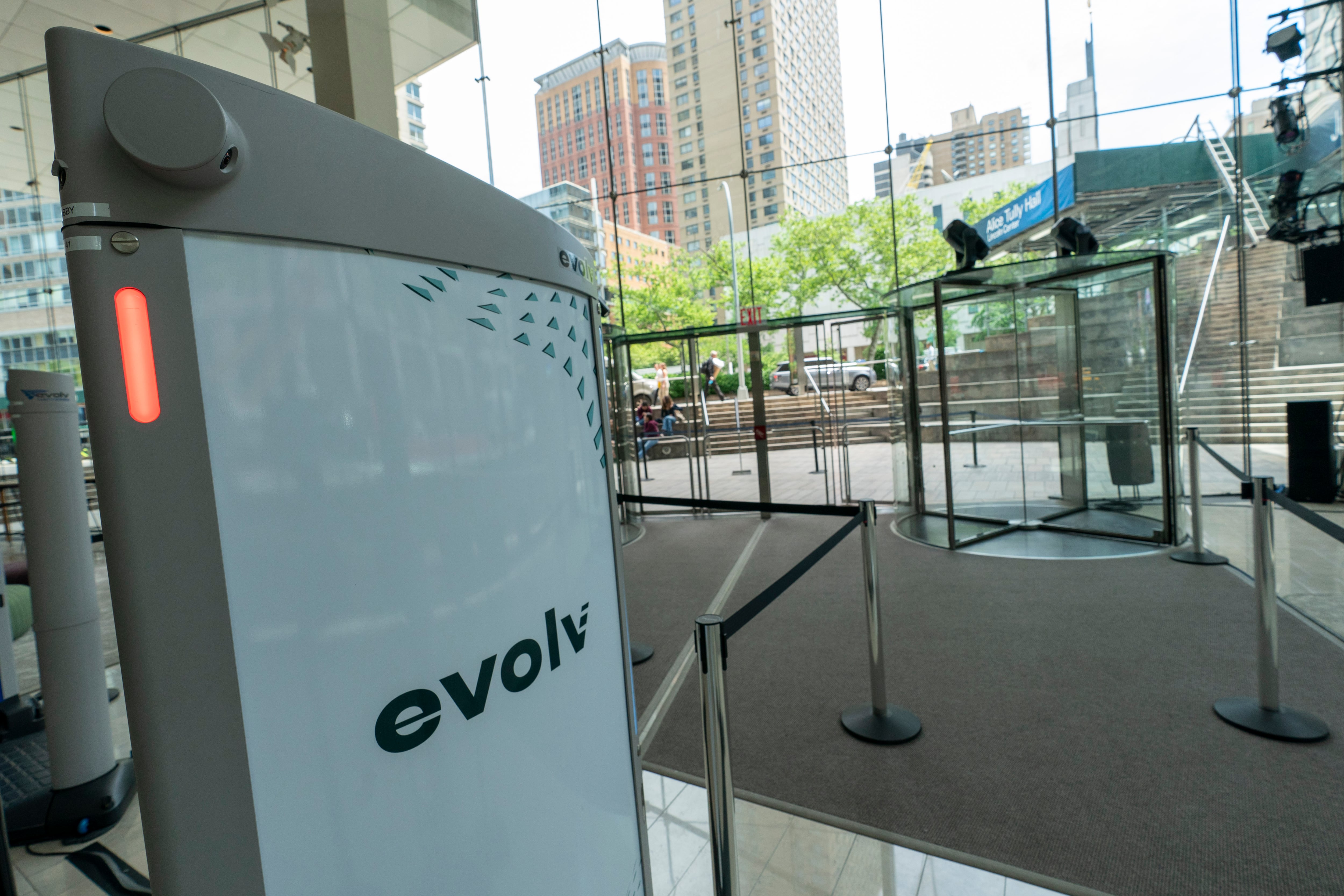Veterans’ hospitals short on police guards have turned to a purported artificial intelligence-based weapons scanner with advertised features that offered an artificial sense of security compared to the actual capabilities of conventional metal detectors that cost about 25 times less, according to the Federal Trade Commission.
The Department of Veterans Affairs continues to pay a subscription — now valued at $372,000 — for the Evolv Express system in Buffalo, New York, and has plans to roll out more machines.
Last week, the department signed a contract worth up to $1 million for the installation of a different AI weapon-detection tool with similar advertising, federal databases and contracting papers show.
The VA’s inventory of AI uses acknowledges that the department operates and maintains the system.
The department’s interest in Express, meanwhile, has alarmed some law enforcement specialists and independent security testers.
“It is particularly problematic, given this is a federal agency, buying a federally-sanctioned product, and this is supposed to be put in hospitals, specifically to guard against active shooters and vets who might want to hurt themselves in the hospital,” said Jim Bueermann, a retired police chief who leads the Future Policing Institute, a nonprofit that helps law enforcement agencies use AI responsibly.
“We use scientific methods to test” security devices, “not the marketing material from the company that intends to make money off the sale of that system.”
When the VA contracted for detectors at the Buffalo VA Medical Center in August 2023, the Express webpage explained the device uses “proven artificial intelligence” to ensure “more accurate threat detection” than metal detectors and “a line-free experience without slowing down.”
Also at that time, the homepage of Evolv Technologies, the machine’s maker, touted that Express screens “in a touchless manner,” which “drastically reduces human errors by security guards.”
Additionally, Evolv’s “Virtual Demo” webpage declared that Express will “reduce labor costs by up to 70%.”
The Federal Trade Commission filed a lawsuit in 2024, describing each of those performance claims as false, misleading or unsubstantiated. Nearly one year later, the company has not released independent, third-party tests to validate its claims.
RELATED

In addition to the FTC case, three shareholder lawsuits accuse Evolv of marketing a system that fails to detect certain knives, guns and bombs, and raises alarms over harmless items as an AI alternative to traditional metal detectors.
Express actually employs common electromagnetic sensing, and not AI, to detect objects — and only metallic ones, the FTC complaint states.
Before the FTC took action, Evolv claimed that its AI can classify an object as either bad or benign by comparing the “metallic composition, shape, fragmentation,” and other traits that the sensing detects with the known traits, or “signatures,” of all weapons.
VA hospitals are not the only federally-funded buildings that display the $1 billion firm’s sleek, white archways. The U.S. government has agreed to pay roughly $4 million for various Express installations at schools and museums, including the National Museum of the Marine Corps.
Currently, security system vendors CEIA and Garrett Electronics lead the metal-detector market in the federal sector, with comparable walk-through machines for entrances costing less than $15,000.
Last week, a Chicago VA hospital inked a four-year deal worth up to $1.3 million to launch a newer “AI-powered weapon detection system,” called Xtract One SmartGateway, with advertised “touchless” and “non-invasive” performance features that, some independent testers say, have not been validated.
In response to questions about the concerns regarding these systems, VA Press Secretary Pete Kasperowicz said in an emailed statement, “VA employs a wide range of robust security measures to keep veterans, employees, and our facilities safe. To prevent circumvention of security measures, VA does not disclose protective techniques.”

Evolv Technologies did not provide a comment in response to concerns about the VA’s or other federal agencies’ specific purchases or uses of Express.
In an emailed statement, Evolv Chief Marketing Officer Alexandra Smith Ozerkis said, “We stand behind our technology.”
Across all industries, “roughly half of contracts that are up for renewal this year have already been renewed. These are customers that have deployed our technology, seen it work in real-world environments, and are choosing to renew and/or expand their investment,” Ozerkis said.
Evolv shares external testing results with prospective customers, Ozerkis added by email, declining to provide a copy.
VA’s ‘touchless’ weapons scanner needs more than two hands
The number of objects that Express can detect depends on the sensitivity level a user sets.
Security researchers explained that the higher levels require more staff supervision to triage false alarms involving laptops, canes or other harmless items, while the lower levels allow in more entrants — and some guns or umbrellas they are packing, unless staff manually check bags.
“For both of these approaches, you’ll still have to have human guards,” said Nikita Ermolaev, a senior research engineer at IPVM, an independent firm that tests and rates physical security tools.
Security staff are in increasingly short supply at the VA. Under former President Joe Biden’s administration last August, the VA inspector general identified police officer shortages as among the top five reported staffing gaps across VA hospitals.
That count emerged before current President Donald Trump’s administration announced plans to further slash 30,000 department employees by the end of September.
“At a hospital that is low on staff, Express can be set to the lower sensitivity setting, which will have the hospital dealing with fewer false alarms, but they will also be missing more weapons. And that could create a false sense of security,” Ermolaev warned.
While a proposed settlement with the FTC that admits no wrongdoing will ban Evolv from making unsupported claims about the technology’s ability to use AI for weapons detection, product descriptions in the VA’s purchasing plans still cite some of those assertions.
For example, VA Capitol Health Care Network procurement papers explain that Express’s use of AI to detect threats will ensure that entrants “are not required to divest any of their personal items or stop and pose in any manner.”
The documents also state, “Without this software and equipment, the potential exists for an insider threat/active shooter-based attack” within the Baltimore, West Virginia and Washington, D.C., medical centers.
Juliana Gruenwald Henderson, a deputy director at the FTC Office of Public Affairs, said in an email that the agency cannot comment on whether a company is complying with an FTC order.
The VA’s attraction to Express’s advertised AI capabilities may be part of a larger federal contracting problem, in which agencies refrain from questioning the inner workings of devices claiming to be high-tech, said Matthew Guariglia, a senior policy analyst at the Electronic Frontier Foundation, a nonprofit digital rights group.
“VA hospitals are clamoring for some way of preventing any gun violence, which is a very real concern,” and to decide to “just throw technology at it is a shame,” Guariglia said.
Federal purchasing decisions “are so often rarely about actual science and so much more about the relationship between the buyer and the marketing person or a specific company,” he added.

Meanwhile, this spring, Chicago’s Jesse Brown VA Medical Center — the site of a recent active shooter and a self-inflicted fatal shooting — issued a solicitation for a “concealed weapons detection system” with product requirements that resemble Express’s advertised features.
The Chicago solicitation and the Capitol Health Care Network’s purchase plans for Express both specify the need for “AI and advanced algorithms to differentiate between threats (guns, Improvised Explosives Devices etc.) and nonthreat items such as phones, keys, belt buckles etc.),” such that individuals “are not required to divest everyday items.”
Xtract One, a smaller vendor that similarly claims to detect weapons while avoiding false alarms on harmless objects, ultimately won the work.
On Aug. 26, the VA initiated a four-year contract worth up to $1.3 million for the deployment of Xtract One’s machinery at the Jesse Brown VA Medical Center.
IPVM’s Ermolaev said that, similar to Express, “real-life performance remains to be seen” with Xtract One, as independent testing results remain unavailable.
Earlier this summer, Xtract One said in an emailed statement that nondisclosure agreements cover tests that other organizations conducted, and “therefore, we cannot provide those results.”
“We believe that we have a strong solution to address the VA’s requirements,” the company added.
However, Ermolaev cautioned, “If you’re looking to find a lot of concealed weapons, whether it’s small, subcompact guns or knives, and you’re low on people, it’s a very difficult task to achieve with current state-of-the-art weapons detectors — and that goes beyond Express to their competitors — because the same fundamental trade-off applies,” meaning the trade-off between spotting the most weapons and hands-free screening.
False alarms at DOJ-funded schools, Marine Corps Museum
Advertisements aimed at schools that portrayed Express as an answer to the trade-off between security and convenience caught the FTC’s attention, according to the agency’s complaint, particularly after a New York school district’s scanners failed to detect a gun and knives, including a seven-inch one, that a student allegedly used to stab a peer in 2022.
The complaint explains that, the next year, Evolv offered a higher-sensitivity level and an acknowledgment: Schools may need more staff to run Express, as the machine may still miss some knives, trigger more false alarms and require the installation of a conveyor belt to divert harmless items.
By October 2023, the FTC had launched its investigation.
Not every school district or federal funding authority got word of the controversy. Officials at Colton Joint Unified School District in San Bernardino County, California, and Bristol City School District in Bristol, Tennessee, said via email that they were unaware of product-performance concerns when they applied for 2023 Department of Justice grants totaling $950,000 to purchase Express.
A federal spending database’s summaries of the Express grants emphasize features — such as AI-based “touchless security screening” and “allow[ing] for many students to pass through while still detecting potential weapons in their possession” — that Express does not offer, according to the FTC and the schools.
For example, in Bristol City, three-ring binders triggered alarms, which initially prompted staff to inspect backpacks manually, school officials said. Now, students must place them, along with cellphone chargers and laptops, on a table before entering.
In response to questions and concerns, Justice Department spokesperson Sheryl Thomas said in an emailed statement that DOJ’s Community Oriented Policing Services Office, which awards billions of dollars to state and local agencies, decided that funding the purchases of Express and other grantees’ projects may “improve security at schools and on school grounds” as part of “evidence-based school safety programs.”
Bristol City School District Superintendent David Scott, who was not in office at the time of the award, said by email, “I guess their marketing strategies had us convinced that the Evolv Express was the top tier.”
Bristol City schools intentionally dial the sensitivity “pretty high,” Scott noted. “We have added very expensive technology and still need to assign monitoring duties to two staff members per archway, one to watch the screen and one to be ready to accost someone who enters with a questionable object.”
Still, Scott pointed to real benefits, albeit ones also common to traditional metal detectors, such as displaying a commitment to security, keeping lines orderly and deterring students from smuggling in vape cartridges and other contraband.
Colton Joint Unified Communications Director Katie Orloff said by email that the school system has not finished ordering the machines and is aware of the ability to adjust the sensitivity level.
In addition to federally-funded hospitals and schools, several federal museums, among them the National Museum of the Marine Corps in Triangle, Virginia, continue paying a premium for Express amid false alarms.

Staff at the Marine Corps museum said in an email that they were not aware of the FTC lawsuit until a reporter contacted the museum.
The museum sets its $350,390 Express system to “maximum sensitivity” to screen upwards of 150 people who attend the facility’s roughly 500 events each year — yielding “frequent false positives,” with the main culprits being umbrellas, phones or eyeglass cases, museum staff said.
Such false alarms can become a security threat themselves, according to researchers at the security and surveillance industry research group IPVM and the advocacy group Surveillance Technology Oversight Project (S.T.O.P.).
Earlier this year, when the alarm rate hit 50% at one of New York City’s top museums, where concealed umbrellas on a rainy day made Express “cry wolf,” guards did not respond to two-thirds of alerts, an IPVM-S.T.O.P. field study found.
Marine Corps museum officials, after witnessing a high false-alarm rate during installation, trained security staff to examine the location of any alert manually, museum staff said.
“Security protocols still include visual bag checks,” staff added. “No cost savings have been identified.”
The Marine Corps museum sees other advantages — including the aesthetics that Express contributes to the facility. Previously, the museum assigned a guard to the minute-long task of wanding attendees with handheld metal detectors. Now, Express’s visual display of the location of flagged threats handles the process in seconds, museum staff said.
“Unlike earlier screening methods that resembled TSA checkpoints, Evolv makes visitor entry smoother and more pleasant,” they added, referring to Transportation Security Administration stations at airports.
Some law enforcement consultants remain wary, noting that TSA, unlike Evolv, does not claim its imaging systems will find improvised explosive devices.
“Most assuredly, commercial airports have a complete X-ray system in place, and they still swab for explosives,” said Phillip Lukens, a recently retired police chief recognized for incorporating AI into operations.
“I’m not sure that I understand how this system is so innovative that it’s able to detect an explosive, based on sensors or algorithms, if it can’t detect chemical composition … It gives me pause.”
Aliya Sternstein is an investigative journalist who covers technology, cognition and national security. She is also a research analyst at Georgetown Law. Her writing on the intersection of public health and constitutional rights has appeared in the Stanford Law Review, Arizona Law Review, and other law and health academic journals.





